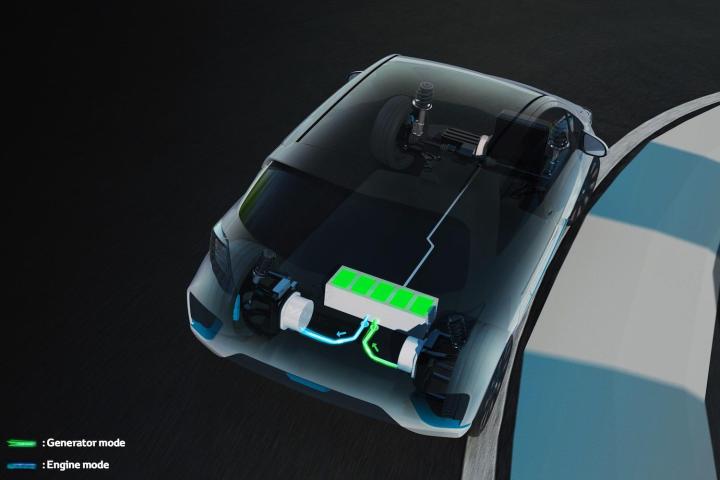
Toyota has officially laid out the details of the forthcoming Yaris Hybrid R Concept, which is set to debut in Frankfurt next month. While we had brought you a cursory outline of the powertrain last week, we now know exactly how it works. And while it’s not too wildly groundbreaking, it’s still pretty darn cool.
First off, the Yaris Hybrid R produces a total of 420 horsepower from the help of 300 horsepower inline four-cylinder 1.6-liter gasoline engine, a super capacitor, and not two but three 60 horsepower electric motors.
The Yaris Hybrid R is an all-wheel drive car, just like the standard Yaris Hybrid sold outside the U.S. with one electric motor driving each rear wheel. Where the Hybrid R differentiates itself from the standard Yaris Hybrid is up front with the high-power gas motor and super capacitor.

Unlike the nickel-metal hydride battery pack in the Yaris Hybrid, the super capacitor in the Hybrid R allows for rapid recharge and discharge, allowing the Hybrid R to quickly grab kinetic energy during hard braking but also allowing it to ferociously push that energy out to the wheels on full-throttle power.
When the drivetrain puts out too much torque for the front wheels to handle, the third electric motor sandwiched between the 1.6 four and the sequential six-speed gearbox upfront engages and sends the power rearward to the rear wheels. This is sort of like a traditional traction control system but rather than zapping power and limiting throttle, power is instead rerouted for improved acceleration and handling. It’s pretty brilliant.

But wait: the brilliance continues. Just like the Mercedes-Benz SLS AMG Electric Drive, the two rear electric motors can be used to create positive or negative torque on demand. This means that not only cornering improves hugely but so does energy regeneration. Slow the inside rear wheel and the car turns more sharply, handles better, and more power is sent to the super capacitor for more full-throttle force after the apex.
Again, the Yaris Hybrid R might not seem like an exciting car but its drivetrain is very, very promising. Remember, we keep hearing rumors of a hybrid-powered Scion FR-S for the future. This very well could be the powertrain that Toyota will fit to it.
Your move, Porsche.


